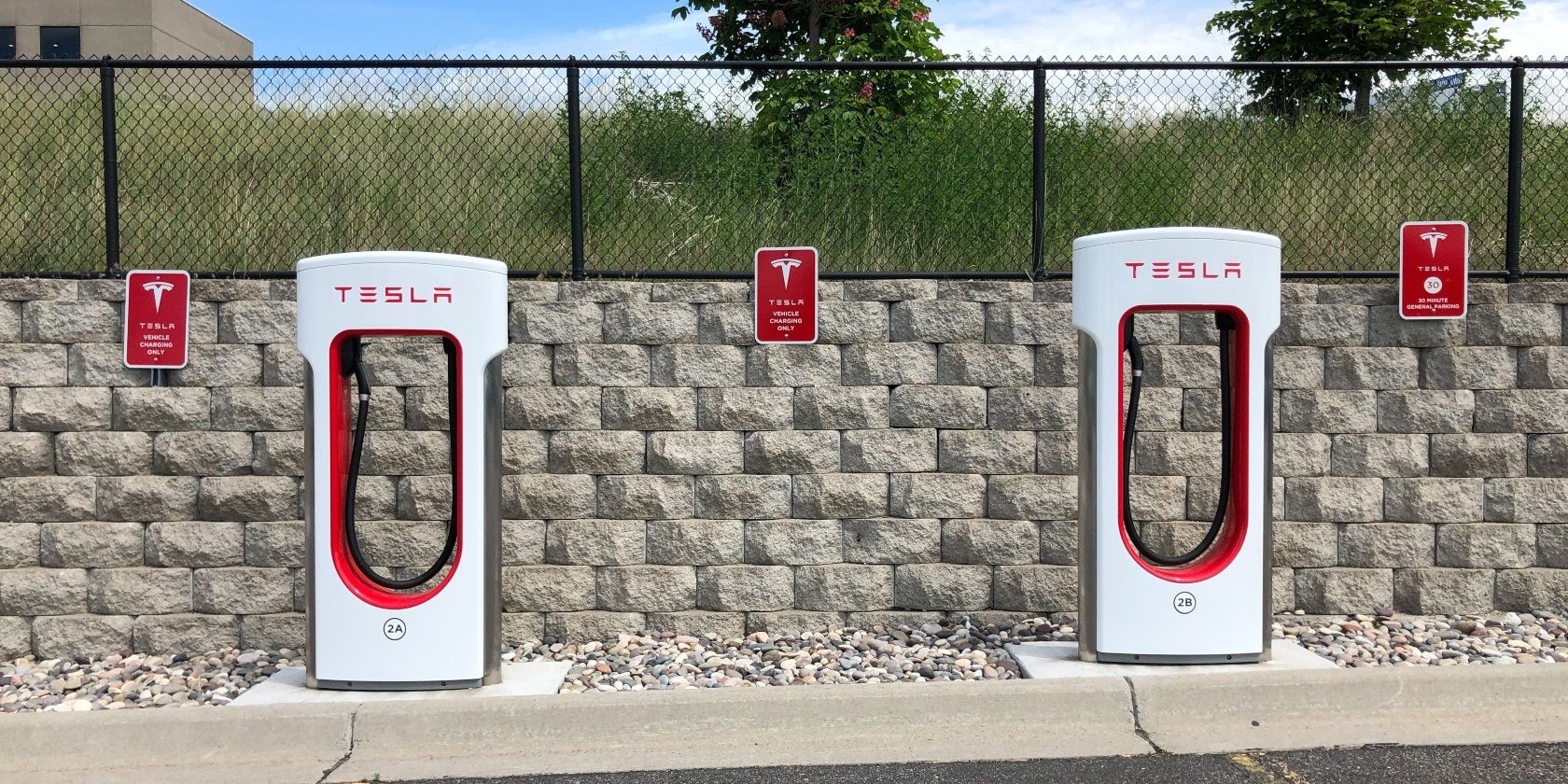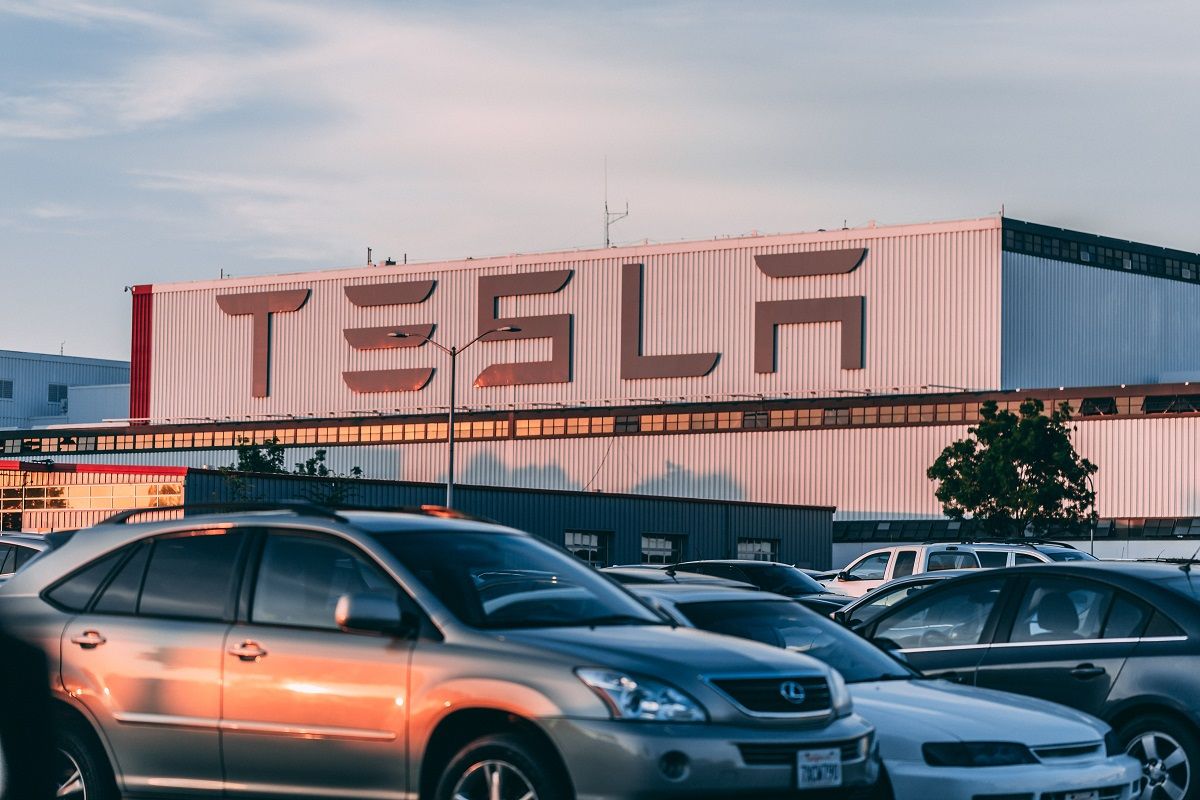Tesla's North American Superchargers are designed to charge Teslas only. However, the company plans to open its Superchargers to non-Tesla cars soon.But how much will it cost non-Tesla drivers to charge their cars at Tesla Superchargers?
Tesla Superchargers Will Soon Accept Non-Teslas
According to a White House fact sheet released in June, Tesla will make its Supercharger network accessible to non-Teslas by the end of 2022.
The White House writes:
Later this year, Tesla will begin production of new Supercharger equipment that will enable non-Tesla EV drivers in North America to use Tesla Superchargers.
The White House refers to CCS (Combined Charging System) adapters, which Tesla will add to its existing Supercharger network and include in new Supercharger stations. CCS adapters are compatible with all electric cars, thus allowing them to use any CCS-equipped charging station.
Why Is Tesla Opening Up Its Superchargers?
The US government wants 50% of all new cars sold in the US in 2030 to be electric or hybrids. It also aims to have 100% of the federal government's fleet to be zero-emission by 2035. Such a vast fleet of electric vehicles will require many more superchargers across America.
To this end, the Infrastructure law signed by Biden allocated $7.5 billion to help expand America's electric car charging network. To access this money and use it to expand the Supercharger network across the US, Tesla must open its Superchargers to other electric car brands.
How Much Will Non-Tesla Drivers Pay at Tesla Superchargers?
According to Tesla investor Sawyer Merrit, Tesla plans to offer non-Tesla EV owners two plans: a Pay Per Use plan which will allow you to pay as you go, and a membership plan which will cost $0.99/month and which will charge a lower price per kWh than pay as you go.
If true, Tesla superchargers will cost drastically less than the $4 a month that Electrify America charges, enhancing their rivalry. As for the prices per kWh, these will vary from place to place and sometimes by the time of day. That's because electrical rates also change by these metrics as well. However, on average, it costs 25 cents per kWh across America's Superchargers.
According to Chargemap, Tesla drivers in Europe pay the equivalent of 46 cents per kWh to charge their car, compared to non-Tesla drivers who pay the equivalent of 68 cents per kWh at a Tesla Supercharger. Thus, if Tesla follows its European plan, non-Tesla drivers might pay a little more than Tesla drivers to charge their cars.
Tesla deleted the payment information for non-Tesla drivers in the US from its app less than a day after publishing it, indicating that it probably published it by mistake. Therefore, we will have to wait to know what Tesla will ultimately charge them to access its Superchargers.
Nevertheless, despite the higher prices non-Tesla cars get at a Supercharger plug, it's still more affordable to maintain an EV over a gasoline-powered car. According to the ICF Climate Center, electric cars are three times cheaper to operate than gasoline cars,
Will Tesla Superchargers Become Congested?
Tesla drivers are likely to be unhappy with this decision. That's because Tesla superchargers sometimes suffer long queues, and opening them up will likely add to the problem. However, the federal funds that the company will get to expand its Supercharger network should eventually fix that.
As was noted by the White House fact sheet:
Tesla is making investments at its Gigafactory in Buffalo, New York to support the deployment of new fast charging stations to add to its fast-charging network.
Also, Tesla's network of Superchargers is reasonably extensive. There are places like the Midwest US where many Tesla stations are barely used. Opening up those stations to other electric cars will increase Tesla's revenues and help it recoup its investment.
Superchargers Should Be Universal Like Gas Stations
The US has approximately 150,000 gas stations but only 6,000 Superchargers. The few Superchargers available should be shared with all vehicle brands as the country builds more electric cars.
Tesla's decision will help accelerate the transition from gas to electric cars and eventually help reduce the country's reliance on fossil fuels.



